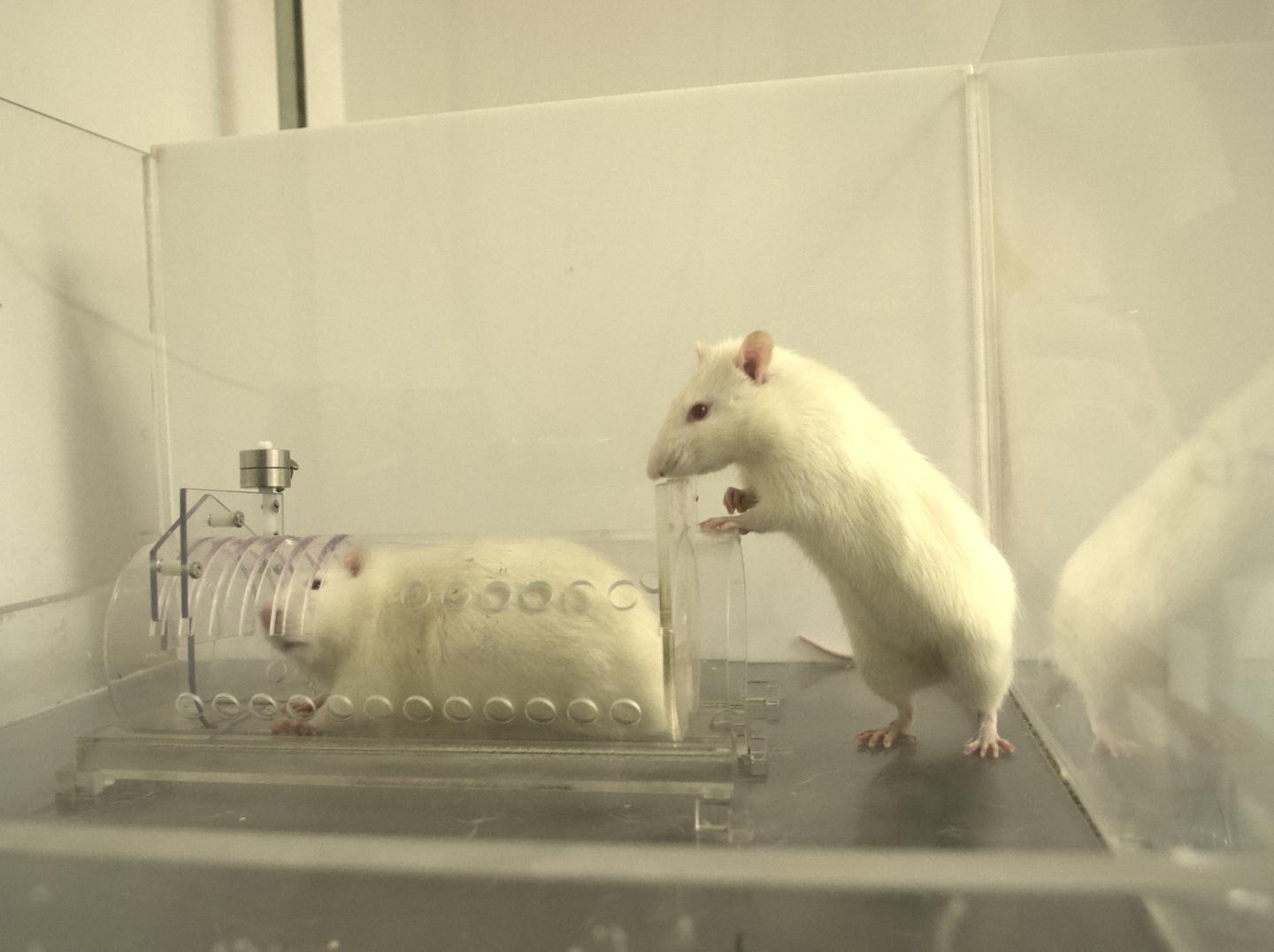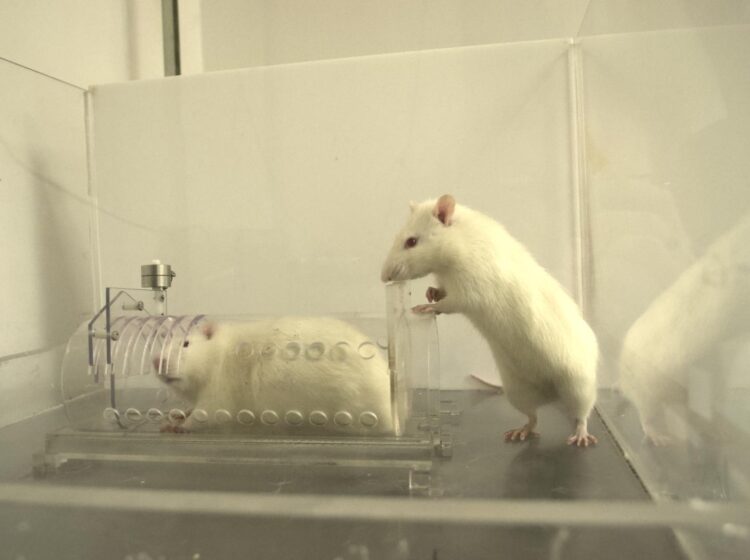A new study identifies the brain regions involved in rats’ tendency to help members of their own social group over strangers, with findings that may help scientists better understand similar social biases in humans

Credit: Inbal Ben-Ami Bartal (CC BY 4.0)
Rescuing a member of their own social group, but not a stranger, triggers motivational and social reward centres in rats’ brains, suggests a report published today in eLife.
The study provides the first description of similar brain activity in both rats and humans underlying this socially biased behaviour. The findings add to our understanding of social biases and could help with developing ways to promote cooperation outside of an individual’s social group.
“Humans, as well as many other creatures, are biased toward helping other members of their social groups over individuals they view as outsiders, and this can have a negative impact in diverse societies where different groups need to cooperate in order to thrive,” says first author Inbal Ben-Ami Bartal, a faculty member at the Sagol School of Neuroscience and the Psychology Department at Tel-Aviv University, Israel. “Understanding the brain mechanisms underlying these biases is essential to finding ways to eliminate them.”
To explore this further, Bartal and a multinational team of colleagues placed rats in a situation where either a cage mate of the same type of rat, or a different type of rat they had never met, was trapped. In the experiments, most rats learned to free their cage mate, but few rescued the stranger.
The team then examined the brain activity associated with these behaviours to understand why the rats were biased towards helping their cage mates. They found that some regions of the brain are activated in response to the distress of either a cage mate or an unfamiliar rat, meaning that rats sense the distress of another animal whether or not they know them. But additional brain regions associated with reward seeking and positive social experiences were turned on only when a cage mate was in distress. “This brain activity in the rats that helped their fellow group members suggests an empathetic response to their distress,” Bartal says.
Previous studies in humans have also suggested that empathy towards fellow group members drives the desire to help them but not strangers. The current findings suggest that similar brain activity may drive these social biases in rats and potentially other mammals.
“We’ve provided the first evidence for a common biological mechanism driving empathic helping behaviours in humans and rats in response to the distress of friends,” concludes senior author Daniela Kaufer, Professor at the Department of Integrative Biology and the Helen Wills Neuroscience Institute at the University of California, Berkeley, US. “Our results lay the groundwork for future studies to better understand the brain activity involved and why it causes us to choose helping some people over others.”
###
Media contact
Emily Packer, Media Relations Manager
eLife
[email protected]
+44 (0)1223 855373
About eLife
eLife is a non-profit organisation created by funders and led by researchers. Our mission is to accelerate discovery by operating a platform for research communication that encourages and recognises the most responsible behaviours. We aim to publish work of the highest standards and importance in all areas of biology and medicine, including Neuroscience, while exploring creative new ways to improve how research is assessed and published. eLife receives financial support and strategic guidance from the Howard Hughes Medical Institute, the Knut and Alice Wallenberg Foundation, the Max Planck Society and Wellcome. Learn more at https:/
To read the latest Neuroscience research published in eLife, visit https:/
Media Contact
Emily Packer
[email protected]
Original Source
https:/
Related Journal Article
http://dx.





